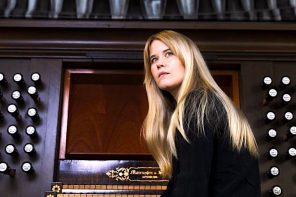Reports of the death of God are greatly exaggerated, to paraphrase Mark Twain. God may not be dead, but we are becoming increasingly aware of just how irrelevant the Almighty is to religious life.
Some of the greatest moral leaders of our day recognize this new spiritual reality. In a poetic and prophetic opinion piece in the New York Times this weekend, Bono asked “Do you know where your soul is?”
Soul Music
On the one hand, Bono is not a religious leader, just an entertainer with the celebrity cachet to transform rock fame into political muscle. Yet he is not simply a superstar, and he is surely not quite a god. Hero to some, icon to many, inspiration to countless fans… perhaps religious leader is not that far off the mark, come to think of it. Rick Warren couldn’t have raised this question in the New York Times; nor could Pope Benedict, Rabbi David Saperstein, or Louis Farrakhan. Oprah maybe. Richard Gere, certainly. But the power and persuasion of sacred celebrity culture is not the focus at the moment.
Bono’s heartfelt and lyrical reflections on his own Christian sensibilities during the Easter season take a rather unusual turn. With poignant and insightful commentary on the words carnival and redemption, Bono uses his own spiritual struggles and revelations to encourage debt relief and other forms of aid to alleviate suffering around the world. Before all this Christian soul-searching and nuggets of prophetic wisdom can reach their fulfillment in glorious praise of Jesus, the Rock God turns his thoughts to… Warren Buffett and Bill Gates. OMG! Bono closes his public challenge to reflect on values—as much as value—in these sobering economic times with two agnostics (he thinks) who are using their vast, vast wealth to fight against extreme poverty.
I think Bono thinks they both have souls—and good ones at that—because they have invested their money and power in a just cause. Bono finishes his essay with a shout out to Nelson Mandela, another towering global figure who has committed his life to helping others. Bono wonders about his spiritual orientation: “Religious? I’m told he would not describe himself that way.”
And then the zinger, the last sentence: “Not all soul music comes from the church.” Can I just add “hallelujah!”? Bono chose not to glory in the saving powers of Christ, proselytize his faith, or condemn others for their lack thereof. Instead, this man of faith turns to others who hold different religious views (perhaps even non-monotheists!) and praises their virtues, their moral commitments, in a way that allows for the possibility of religious sensibilities in their socially engaged actions. “Soul music” is Bono’s way to capture, metaphorically, a sacred stance and engagement in the world emanating not from the usual, institutional sites, but from prison cells and investment firms.
May the (Police) Force be With You
Across the pond, a news story from Scotland points us in the same direction—God may no longer be the only sacred game in town. Instead, the Force and Jedi masters rule the universe, and the iconic Star Wars industry provides the mythic script for religious living and moral investment.
In the largest police force in Scotland, eight police officers recently listed their religion as “Jedi” on the voluntary diversity forms they were required to fill out. In the words of one reviewer: “Far from living a long time ago in a galaxy far, far away, some members of the noble Jedi order have now chosen Glasgow and its surrounding streets as their home.”
The BBC reports the rather astronomical-sounding numbers* from a recent census of England and Wales indicating that 390,000 identify themselves with the Jedi religion, and nearly 14,000 who claim allegiance to the Jedi Force in Wales. But even more tellingly, we learn that the Office of National Statistics there does not recognize the religion separately, so followers were bunched under the “atheist” category (which is, after all, fitting since there is no deity in the Star Wars cosmology).
Moral community and religious formation do not emanate only from our celebrity leaders, they are also shaped by another so-called secular cultural phenomenon: the Hollywood dream factory. The Star Wars series creates a universe without God, though certainly not devoid of sacred possibilities—the “Force” is not God the Father, the Son, or the Holy Spirit, but is an “energy field” (as Obi-Wan Kenobi explains) that penetrates and binds together everything in the galaxy.
Even though a godless universe is presented and elaborated on in each of the six films that constitute the saga, the tale as a whole—its structure, plot, characters, references—is religious through and through. The popular reception of audience members, from the opening of the first film (actually the fourth in the series) in 1977, to 2005’s release of the final film has transformed the religious story into a religious myth overflowing from the theater, seeping into and inspiring the creation of new forms of cultural communities, commitments, and identities in the United States and around the world.
From the moment A long time ago, in a galaxy far, far away. . . first crawled up movie screens, the Star Wars phenomenon has grown larger than life; despite being saturated in the American cultural landscape. The six-part film series has not only generated billions of dollars in ticket sales and merchandising, it has inspired the religious imagination of fans who see something more in the film than a commercially entertaining story. On the one hand, the narrative itself provides viewers with a mythology that is vivid and gripping as it covers well-trodden, mythically familiar territory—good battling evil, revealed mysteries about the true order of the cosmos, innocence lost, self-discovery, transcendence of death, and ultimate reconciliations.
On the other hand, the series has made a dramatic impact over the years on the lives of devoted fans: personal identities have been transformed; tight-knit communities have been formed; complex and meaningful ritual systems have emerged in cyberspace, at conventions, with video games, and in other non-theater settings. Seeing the films is simply not enough for many who seek to bring the Star Wars mythology to life and into their own lives.
The online repository for all things spiritual, Beliefnet, confirms the force of the Force. A search of the Jedi religion brings a wide range of opinions, commentaries, and stories about this cultural phenomenon, including “The Force is With…Everyone” (you can be a good Christian, Jew, what have you, and still follow the religious teachings of Jedi masters) and “Why I Want to Be a Jedi,” by a Muslim writer looking to apply principles of the Jedi to the world we live in.
I can hear my New Testament and Systematic Theologian colleagues reading this with skepticism if not disgust—and indeed I’ve encountered these kinds of reactions in public forums. “Surely anyone identifying their religion as Jedi is just being silly,” they say. Or “How do you know this is genuine religion and not just some passing fancy?” I imagine after the death of Christ members of the early Christian community may have faced the same kind of incredulity and disdain.
My response: Welcome to the twenty-first century, when sacred matters are not limited to the monotheists, or confined by conventional religious traditions. Bono and Warren Buffet, Master Yoda and Obi Wan Kenobi are legitimate guiding religious lights whose words and actions stir the imagination and rally the faithful in ways those of us who study religion are only beginning to understand.
*Indeed, while genuine adherents to the Jedi religion, and their churches, do exist from Canada to Wales to New Zealand, the inflated numbers are a product of a campaign to get the UK to officially recognize the Jedi religion. According to Wikipedia: “Australian Star Wars Appreciation Society president Chris Brennan reported to The New Zealand Herald that while a minority were “true hard-core people that would believe the Jedi religion carte blanche”, the majority of self-reported Jedi claimed the religion for their own amusement, or to poke fun at the government.”
* * *
Pre-order your copy of Gary Laderman’s new book Sacred Matters (The New Press, May, 2009), here.




